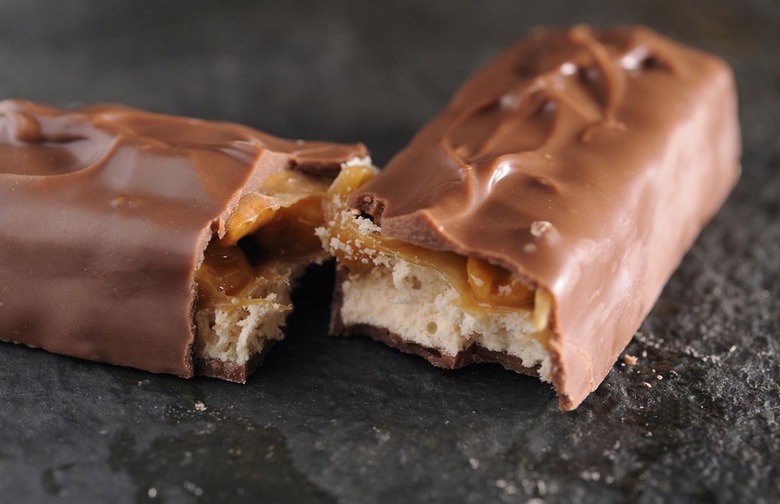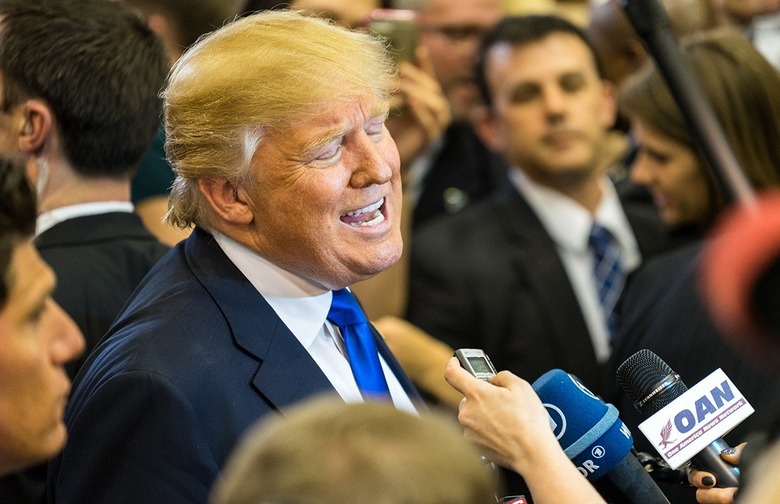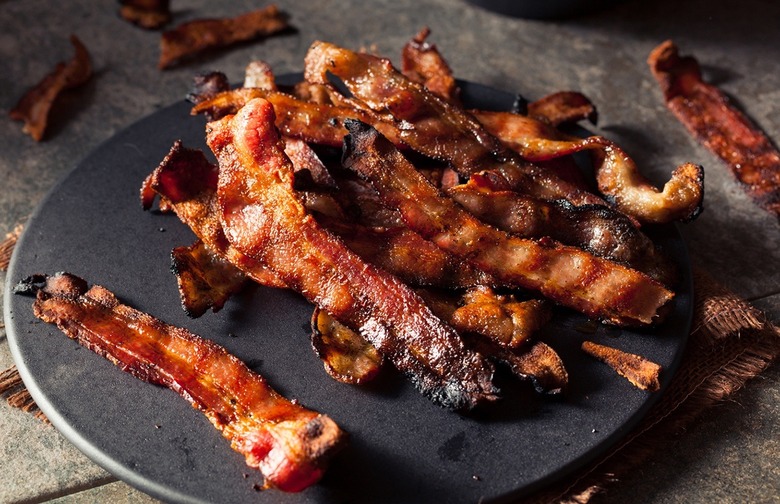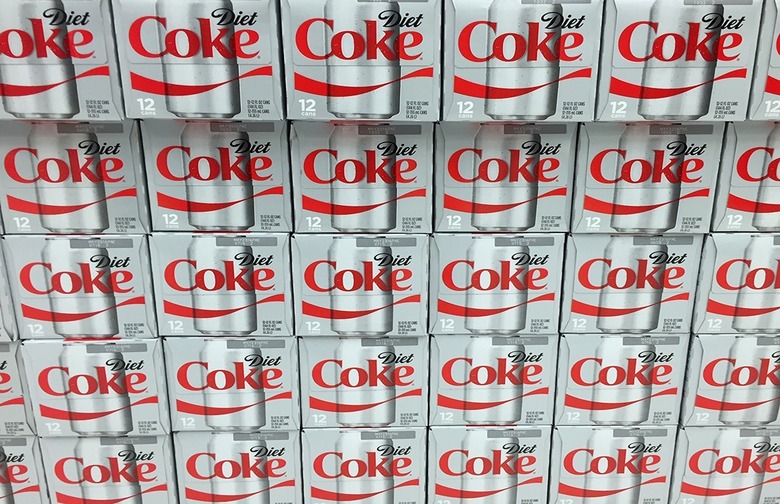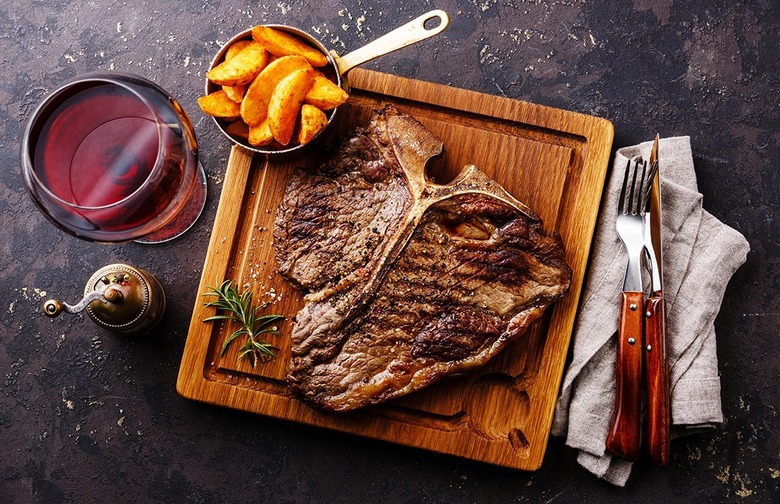10 Nutritionists Weigh In On Donald Trump's Diet Slideshow
Dr. Adrienne Youdim is concerned with Trump's habit of dining out. "Eating out regularly, even if it is not fast food, has negative health consequences. A typical restaurant meal has approximately 1100 calories, 27 to 32 percent saturated fat, and more than 2200 milligrams of sodium per meal! That is excessive by any standard," Youdim points out.
He Eats Too Many Sugary Snacks: Monica Auslander, RD; Founder of Essence Nutrition
Donald Trump doesn't exactly look like the poster child for good health, says Monica Auslander. The registered dietitian argues that Trump's snack preferences while on the campaign trail "scream diabetes — Oreos, candy, and ice cream provide virtually no phytochemicals, and are all highly inflammatory foods."
He Is Surprisingly Concerned With Food Safety: Rebecca Clyde, MS, RDN, CD; Owner of Nourish Nutrition Co.
Based on his reported diet, Rebecca Clyde figures that Dr. Bornstein's seemingly unequivocal statement about the First Patient's health just can't be true. Trump's reliance on fast food and his argument for its reduced risk of contamination, "[have] nothing to do with health and wellness," Clyde points out, and although fast food isn't necessarily the enemy, "most fast-food options contain excess saturated fat, sodium, sugar, and insufficient vitamins and minerals."
He’s Probably Nutritionally Deficient: Jamie Logie, Nutritionist and Founder of RegainedWellness.com
When comparing the physical appearances of presidents Obama and Trump it's obvious which one is reliant on fast food. Jamie Logie believes that Trump's fast-food habit leaves him nutritionally deprived. "Essentially, he's still starving on a nutritional level, but has consumed a ton of calories in the form of a lot of refined carbs, sugars, trans fats, and inferior proteins," notes Logie.
He Relies Too Heavily on Processed Foods: Dr. Scott Schreiber, Certified Nutrition Specialist and Licensed Dietitian
Trump is constantly touting his patriotism, but Dr. Schreiber believes that his "all-American diet" is not necessarily a good thing. "His diet lacks fruits and vegetables. ... He eats heavily processed foods, which contain boatloads of additives and preservatives ... and his diet is his high in sugar. If he keeps eating this way, heart disease is in his future, possible diabetes, high blood pressure, and stroke," warns Schreiber. This diet, paired with lack of exercise makes Trump a, "ticking time bomb."
His Abstinence from Alcohol is a Redeeming Quality: Rosanne Rust, RDN; Author of ‘DASH Diet For Dummies’
With all the well-deserved criticisms of Trump's diet, abstinence from alcohol may be its one redeeming quality. Rosanne Rust, RDN, author of DASH Diet For Dummies acknowledges that although moderate consumption of alcohol can be incorporated into a healthy diet and lifestyle, that, "it's no reason to start drinking." Trump definitely saves calories from not partaking in nightly libations.
His Diet Coke Consumption Is a Concern: Dr. Keith Kantor, CEO of Nutritional Addiction Mitigation Eating & Drinking (NAMED)
Trump's reliance on Diet Coke is a major health concern, Dr. Keith Kantor suggests. "The beverage does not have any calories or sugar, but it's full of chemicals." But quitting the beverage cold turkey has its downside too: "Studies have shown when Diet Coke addicts shake their habit they lose weight and even report [fewer] muscle and joint aches," adds Kantor.
His Diet Is Meat-Heavy: Julia Levine, RD; Nutritional Counselor at NewStart Bariatric Clinic
An overreliance on one food group, whether it's meat, dairy, or refined carbohydrates, can throw off a balanced diet. Julia Levine, a nutritional counselor at NewStart Bariatric Clinic notes that Trump's diet seems to be "very meat heavy, while lacking in fruits, vegetables, and whole grains." Levine recommends that, rather than focusing on red meat, Trump incorporate some fish and vegetarian meals into his diet at least twice a week.
His Diet Is Unbalanced: Dawn Orsaeo, RD, ACE; Certified Health Coach at CareHere LLC
Dawn Orsaeo recommends that her clients follow a 90/10 rule — choose nutrient-dense foods in reasonable portion sizes 90 percent of the time, and less nutritious foods (chips, candies, fast food, etc.) for only the remaining 10 percent. "An occasional steak or cheeseburger with fries is fine, but a healthful diet should have a balance of calories," notes Orsaeo. "From what has been reported, it appears that President Trump's overall food choices and lack of exercise [are] putting him at an increased risk for obesity-related diseases."
His Diet Is Not Just Dangerous to Him but Sets a Bad Example: Toby Amidor, RD; Author of ‘The Greek Yogurt Kitchen’
Based on the evidence of his diet, Donald Trump clearly supports the American fast-food industry, but this isn't setting a good example for his constituents, says Toby Amidor. "Repeated dining at fast-food joints can lead to overconsumption of certain nutrients that the 2015 dietary guidelines has warned can lead to chronic diseases like heart disease, type 2 diabetes, and cancer. These nutrients include saturated fat, sugar, and sodium — all of which can be found in large amounts in menu items sold at fast-food establishments."

